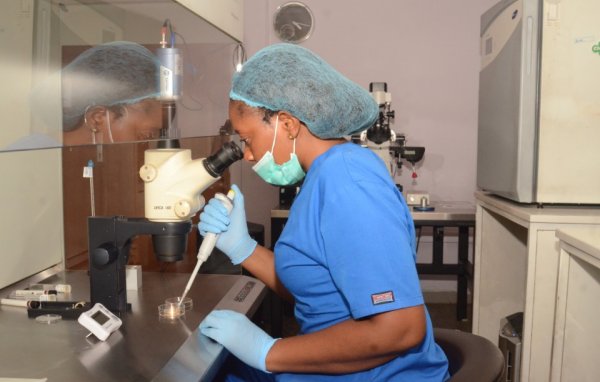Nordica Fertility Clinic has marked its 12th anniversary of providing reproductive health services in Nigeria.
Over the years, the clinic has expanded its services across multiple cities, delivering advanced fertility treatments and supporting thousands of families in their journey to parenthood.
Speaking during a virtual press interview recently, the managing director, Nordica Fertility Center, Dr. Abayomi Ajayi, highlighted key advancements, including the successful implementation of the High-Intensity Focused Ultrasound (HIFU) machine in Abuja, which began operating in July this year.
“Since its introduction, around 22 to 23 patients have received HIFU treatment, underscoring the clinic’s commitment to offering cutting-edge, non-invasive medical solutions,” he said.
The clinic’s reputation for success is reflected in the over 5,000 children born through its interventions, including In Vitro Fertilization (IVF).
The impact across Nigeria is significant, with clinics in Lagos, Abuja, and Asaba all contributing to Nordica’s nationwide success.
The conversation also addressed common misconceptions about fertility treatments. Dr. Abayomi debunked myths surrounding egg freezing and the effects of HIFU on ovarian reserve.
He emphasised that egg freezing preserves the age and genetic quality of a woman’s eggs, reducing the risks of congenital abnormalities and miscarriages associated with later pregnancies.
“If you freeze your eggs at 32 and use them at 42, they retain the age and quality of a 32-year-old’s eggs,” he explained.
Addressing concerns about HIFU’s impact on ovarian health, Dr. Abayomi assured that the technology does not negatively affect ovarian reserve.
“HIFU is a targeted treatment and does not harm ovarian reserve. In fact, our data from reviewing 350 patients showed a slight improvement, although we cannot yet explain this fully,” he stated.
He also called for greater public awareness and accurate reporting on reproductive health while highlighted the need for collaboration with the media to disseminate scientific facts and combat misconceptions, especially among religious groups.
He recounted early challenges in advocating for IVF and how education and exposure have changed perceptions over the years.











